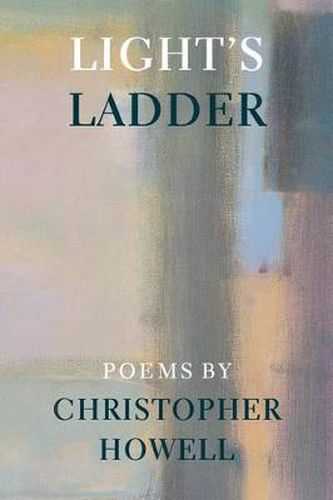Readings Newsletter
Become a Readings Member to make your shopping experience even easier.
Sign in or sign up for free!
You’re not far away from qualifying for FREE standard shipping within Australia
You’ve qualified for FREE standard shipping within Australia
The cart is loading…






This title is printed to order. This book may have been self-published. If so, we cannot guarantee the quality of the content. In the main most books will have gone through the editing process however some may not. We therefore suggest that you be aware of this before ordering this book. If in doubt check either the author or publisher’s details as we are unable to accept any returns unless they are faulty. Please contact us if you have any questions.
In this extraordinary new collection by distinguished poet Christopher Howell, the opening poem presents us with a spiritual paradox that will echo throughout its pages. The speaker remembers an earlier time of happiness, freedom, and a certain innocence. The poem closes with:
And if he remembers now
he is in love, which is the soul’s condition, and alone
because that is how we live.
How we live is the book’s major inquiry; its illustration, the poems’ major achievement. How do we live, in our dailiness, in our loves, our private and global wars? And, in the face of unbearable grief, how can we live?
Keats
When Keats, at last beyond the curtain
of love’s distraction, lay dying in his room
on the Piazza di Spagna, the melody of the Bernini
Fountain filling him like flowers,
he held his breath like a coin, looked out
into the moonlight and thought he saw snow.
He did not suppose it was fever or the body’s
weakness turning the mind. He thought, England!
and there he was, secretly, for the rest
of his improvidently short life: up to his neck
in sleigh bells and the impossibly English cries
of street venders, perfect
and affectionate as his soul.
For days the snow and statuary sang him so far
beyond regret that if now you walk rancorless
and alone there, in the piazza, the white shadow
of his last words to Severn, Don’t be frightened,
may enter you.
$9.00 standard shipping within Australia
FREE standard shipping within Australia for orders over $100.00
Express & International shipping calculated at checkout
This title is printed to order. This book may have been self-published. If so, we cannot guarantee the quality of the content. In the main most books will have gone through the editing process however some may not. We therefore suggest that you be aware of this before ordering this book. If in doubt check either the author or publisher’s details as we are unable to accept any returns unless they are faulty. Please contact us if you have any questions.
In this extraordinary new collection by distinguished poet Christopher Howell, the opening poem presents us with a spiritual paradox that will echo throughout its pages. The speaker remembers an earlier time of happiness, freedom, and a certain innocence. The poem closes with:
And if he remembers now
he is in love, which is the soul’s condition, and alone
because that is how we live.
How we live is the book’s major inquiry; its illustration, the poems’ major achievement. How do we live, in our dailiness, in our loves, our private and global wars? And, in the face of unbearable grief, how can we live?
Keats
When Keats, at last beyond the curtain
of love’s distraction, lay dying in his room
on the Piazza di Spagna, the melody of the Bernini
Fountain filling him like flowers,
he held his breath like a coin, looked out
into the moonlight and thought he saw snow.
He did not suppose it was fever or the body’s
weakness turning the mind. He thought, England!
and there he was, secretly, for the rest
of his improvidently short life: up to his neck
in sleigh bells and the impossibly English cries
of street venders, perfect
and affectionate as his soul.
For days the snow and statuary sang him so far
beyond regret that if now you walk rancorless
and alone there, in the piazza, the white shadow
of his last words to Severn, Don’t be frightened,
may enter you.